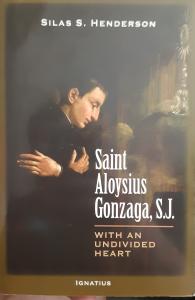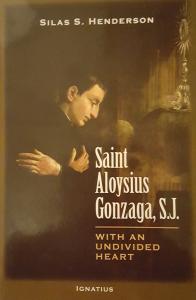![elevationofhost[1]](https://wp-media.patheos.com/blogs/sites/224/2014/06/elevationofhost11-249x300.jpg) In further considering the First Commandment of the Church it is to be noted that there is no other difference between the Third Commandment of God and the First Commandment of the Church except that the Church, inspired by the Holy Ghost and following Apostolic tradition, orders the Sunday to be observed instead of the Sabbath, and also orders the observance of some feasts. Since we can show God no greater honor, nor serve Him more agreeably than by offering the sublime sacrifice of Holy Mass, the Church, for the purpose of making obligatory especially the worthy celebration of the Sunday, commands that Catholics under pain of grievous sin must assist at Holy Mass upon the days of obligation.
In further considering the First Commandment of the Church it is to be noted that there is no other difference between the Third Commandment of God and the First Commandment of the Church except that the Church, inspired by the Holy Ghost and following Apostolic tradition, orders the Sunday to be observed instead of the Sabbath, and also orders the observance of some feasts. Since we can show God no greater honor, nor serve Him more agreeably than by offering the sublime sacrifice of Holy Mass, the Church, for the purpose of making obligatory especially the worthy celebration of the Sunday, commands that Catholics under pain of grievous sin must assist at Holy Mass upon the days of obligation.
God has always been well pleased with sacrifice. Cain and Abel offered sacrifice to God, because doubtless they had seen their parents do so. We may reasonably suppose that God Himself, as the teacher of our first parents in all things, instructed them to honor Him by sacrifice. Later He ordained explicitly the various sacrifices that should be offered Him. But the sacrifices of the Old Law as compared to the Holy Sacrifice of the Mass were but as a shadow compared to reality.
Holy Mass is the true burnt offering whereby is offered to the Most High that honor which is due Him. By no sacrifice is God more glorified than by the Holy Sacrifice of the Mass, which the Saviour has left with His Church in order to offer to the Father a most perfect honor. In Holy Mass God is honored by God, by the Divine Person Jesus Christ. Christ there lays Himself down upon the Altar as the sacrificial victim, and through His act of abasement glorifies the most Holy Trinity in as perfect a manner as it can ever be glorified. This is an act of adoration for God, before which all the sacrifices of praise of mankind vanish, as do the stars before the sunlight. A single Mass honors God infinitely more than the praise of all the Angels and Saints in Heaven.
And by assisting at Holy Mass we offer God, through Christ our Lord, an infinite honor, an infinite homage. Holy Mass is, furthermore, the best thank offering for blessings received. Untold blessings has God shown you, blessings for body and soul, life, good health, sound senses and straight limbs, raiment and food, good parents and a Christian up-bringing, the gift of faith, and many opportunities for good, rescues from spiritual perils, and frequent forgiveness of sins. Realizing the innumerable benefits of God and our own unworthiness, an oppressive feeling is upon us, and seeing that we are poorer before God than the most poverty-stricken beggar in our midst, in shame we cover our face, crying out with David: “What shall I render to the Lord for all the things that He hath rendered to me?” (Ps. cxv, 12). The holy Sacrifice of the Mass was therefore specially instituted for our grateful acknowledgment of the blessings received from God, and for this reason it is called in particular the Eucharist, which means thanksgiving. Christ Himself taught us this by His example, when, at the celebration of the first Mass on Maundy Thursday, He lifted up His eyes to Heaven and gave thanks to His Heavenly Father.
Holy Mass is also the most potent sacrifice of petition. Each one of you knows from his own experience the many needs of mankind. We retire at night with a heart full of cares; and so do we arise in the morning conscious of many needs. See, however, all the graces which we require, be they for soul or body, we may purchase in the most effective way through the Holy Sacrifice of the Mass. Christ Himself gave us assurance that whenever we should ask for a grace in His Name, we should attain it. “Amen, Amen I say to you: If you ask the Father anything in My Name, He will give it to you” (John xvi, 23). In the Holy Sacrifice of the Mass we not only ask in the name of Jesus, but Christ Himself asks for us, and He Himself presents our petition to the heavenly Father. With confidence may we therefore offer in holy Mass our necessities, our needs, our wants, and Jesus Himself takes care of them upon the Altar. “He that spared not even His Own Son,” says St. Paul, “but delivered Him up for us all, how hath He not also, with Him, given us all things.”
Holy Mass is the spiritual sun of the human race, which pours its rays on good and bad, and there is probably no uman soul on God s earth so depraved who could not from hearing holy Mass derive profit and grace. Indeed, history records many conversions wrought by the devout attendance at Mass. Holy Mass is, again, a sacrifice of atonement that has the power to appease God, to bring about the remission of our guilt and punishment, and the remission of the temporary punishment of the holy Souls in Purgatory. For in the holy Mass the innocent Lamb of God is sacrificed, who takes away the sins of the world, whose Blood cries to Heaven not for vengeance, as did Abel s blood, but for grace and pardon. It is the opinion of theologians that holy
Mass effaces venial sins in the one who attends the Mass and who repents, at least in general, of all his sins. St. Augustine says this distinctly: “If anyone hears Mass with devotion, he will not fall into mortal sin, and his venial sins will be remitted.” To this end the priest offers up for himself and for those around him, the Host, to the Lord God, saying: “Accept, O Holy Father, Almighty eternal God, this spotless Host, which I, thy unworthy servant, offer to Thee.”
Theologians say, furthermore, that through the holy Sacrifice of the Mass we can make satisfaction even for mortal sins already remitted, especially for those that have escaped our memory, and which for this reason we have never confessed. Holy Mass may be the means of leading us to pardon for sin, because through the Mass we may merit with God the grace to rightly perceive our sins, to repent, confess and do penance for them. The Council of Trent states this in the words: “Appeased through the offering up of this sacrifice, God grants the grace of repentance, and by means of this penance remits even crimes and monstrous sins” (Less. 22, c. 2). God alone knows the number of the souls who, through the extraordinary graces that flowed to them through the holy Sacrifice of the Mass, have worked their way out of long servitude of sin to a holy life.
The holy Sacrifice of the Mass is of such supreme benefit that we may thereby attain the remission of punishment due to sin. In truth, if holy Mass were not our shield, what might restrain the wrath of God? “Cursing and lying, murder and robbery, impurity and adultery are prevalent,” laments the Prophet Osee. Is it any better in these days of ours? And yet the good Lord looks on patiently. He allows the sun to rise, and gives rain and increase to the fruits of the earth. He looks on patiently, observes St. Gregory, because for the sins of men there is, not merely daily, but hourly, and from every quarter of the globe, offered to Him a sacrifice, not of beasts and inanimate creatures, but of the true Flesh and true Blood of Jesus, His only begotten Son, the Lamb which taketh away the sins of the world..
From what I have said you may understand how valuable is the holy Sacrifice of the Mass, and how absolutely necessary it is for our salvation. Therefore, even n no commandment of the Church would demand it, we should have to consider as very lukewarm any Catholic who, having the opportunity to hear a holy Mass, would neglect to do so. Far from criticising, therefore, the Commandment of the Church, who as our Mother cares for the salvation of her children, we ought to give thanks that every Catholic is obliged to attend at Mass at least on Sundays and holydays, because this act of worship is without doubt absolutely indispensable for the Catholic in working out the salvation of his soul.
Rev. P. Hehel, S.J., Short Sermons on Catholic Doctrine: A Plain and Practical Exposition of the Faith in a Series of Brief Discourses for the Ecclesiastical Year(New York: Joseph F, Wagner, 1912), 101-104.











